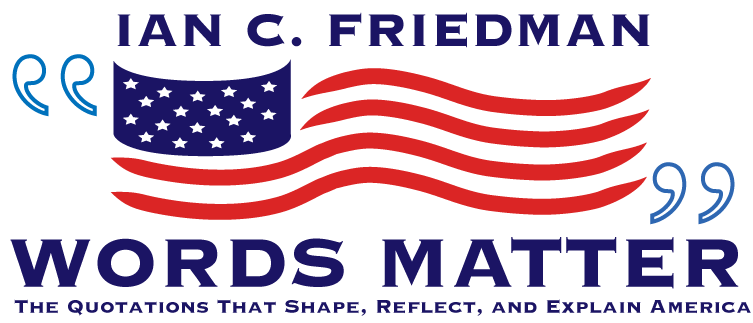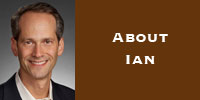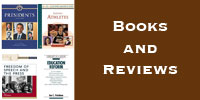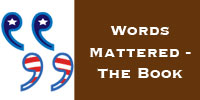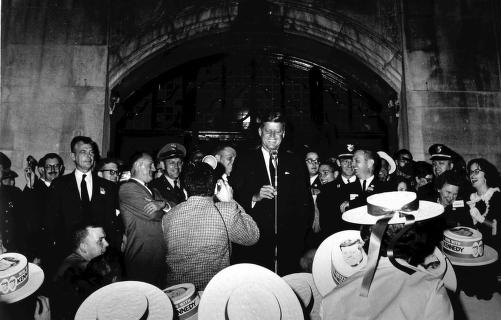“On your willingness to contribute part of your life to this country…will depend the answer whether a free society can compete.” – John F. Kennedy, October 14, 1960
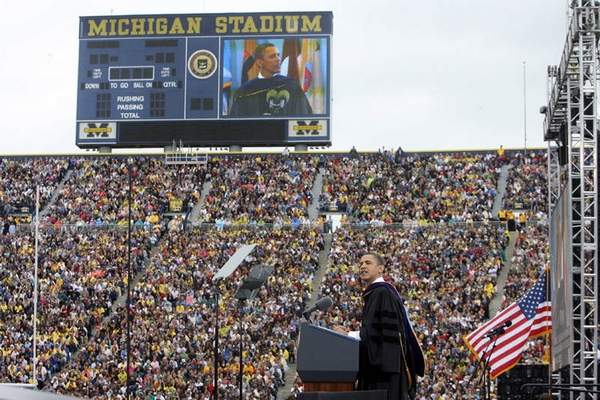 President Obama delivered the commencement address at my alma mater, the University of Michigan, on Saturday.
President Obama delivered the commencement address at my alma mater, the University of Michigan, on Saturday.
He began his speech with an admitted “cheap applause line” by expressing, “Go Blue!” to the approximately 85,000 proud Wolverines in attendance. He then continued by directing his comments to the graduates, developing his theme that in order to maintain and advance a healthy democracy, they will need to understand history (particularly as it relates to the contentiousness of American politics), be open to testing the wisdom of their own ideas, and to imagine and work for a better world.
After suggesting to the graduates that they challenge their own beliefs because, “the practice of listening to opposing views is essential for effective citizenship. It is essential for our democracy.” Obama added:
And so, too, is the practice of engaging in different experiences with different kinds of people. I look out at this class and I realize for four years at Michigan you have been exposed to diverse thinkers and scholars, professors and students. Don’t narrow that broad intellectual exposure just because you’re leaving here. Instead, seek to expand it. If you grew up in a big city, spend some time with somebody who grew up in a rural town. If you find yourself only hanging around with people of your own race or ethnicity or religion, include people in your circle who have different backgrounds and life experiences. You’ll learn what it’s like to walk in somebody else’s shoes, and in the process, you will help to make this democracy work.
Obama also referenced–and specifically noted a portion of–another speech in Ann Arbor almost fifty years earlier from a candidate for president, John F. Kennedy, which has become noteworthy for representing the first public expression for the idea that soon became the Peace Corps. Author, historian, and Michigan Man James Tobin described the details of this unusual and lively visit from Kennedy–featuring a impromptu stop, an extemporaneous and consequential speech, and some unintentional double entendres by the future president that were enjoyed by the college-age crowd–in this excellent article.
The Democratic Party presidential nominee Kennedy’s visit to Ann Arbor came with less than four weeks remaining in his tightly-contested campaign against his Republican counterpart, Vice President Richard Nixon. Like Obama, Kennedy went for the quick approval of his audience early, thanking those who welcomed him, “a graduate of the Michigan of the East, Harvard University.”
Arriving after midnight and planning only to get some sleep before campaigning the next day, Kennedy stopped to speak to the many enthusiastic supporters who had gathered at the Michigan Union. During his speech on the Union’s steps, Kennedy challenged the students to conceptualize service to the United States in a way that would quickly be forged into the model of the Peace Corps. Noted Tobin: “They hadn’t prepared a speech, but Kennedy was good at extemporizing in a pinch. He might have given the students a quick greeting and a standard pitch for votes. No one knows why he chose, instead, to ask them a question that would launch the signature program of his administration and ignite the idealism of a generation.”
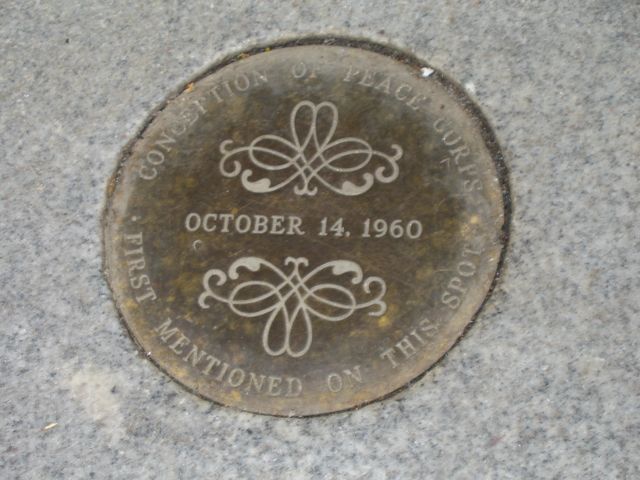 In the brisk evening Ann Arbor darkness, nearly fifty years before another president would address Michigan students with a similar theme in the warm May air, Kennedy said:
In the brisk evening Ann Arbor darkness, nearly fifty years before another president would address Michigan students with a similar theme in the warm May air, Kennedy said:
How many of you who are going to be doctors are willing to spend your days in Ghana? Technicians or engineers: how many of you are willing to work in the Foreign Service and spend your lives traveling around the world? On your willingness to do that, not merely to serve one year or two years in the service, but on your willingness to contribute part of your life to this country, I think will depend the answer whether a free society can compete. I think it can. And I think Americans are willing to contribute. But the effort must be far greater than we’ve ever made in the past.
